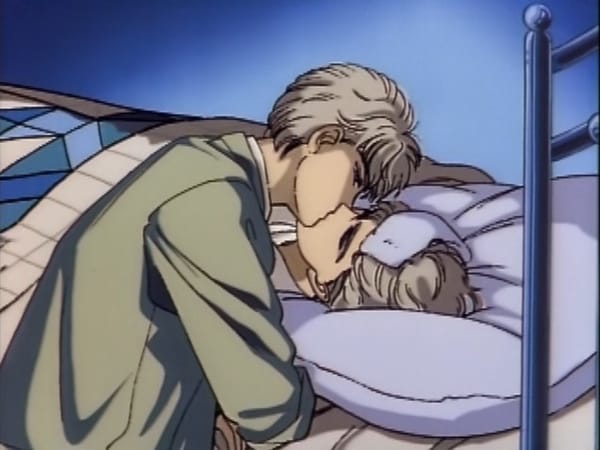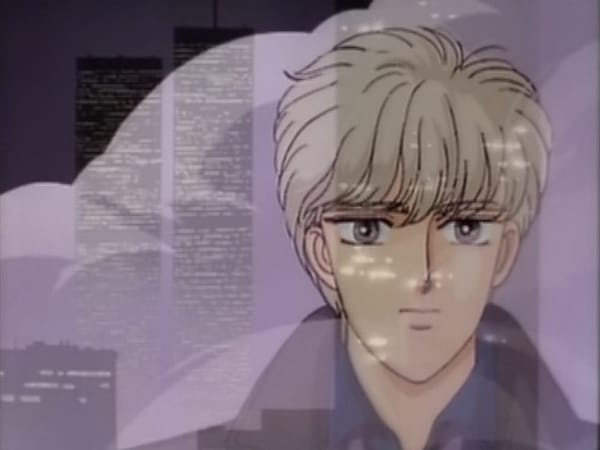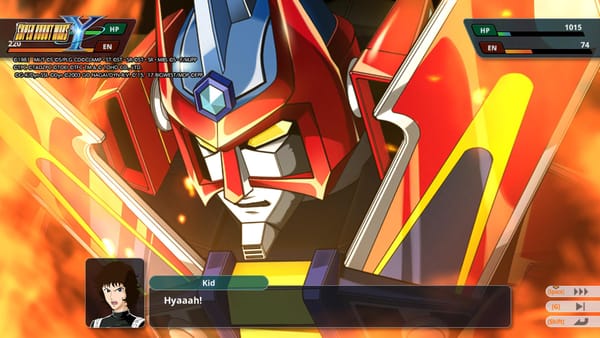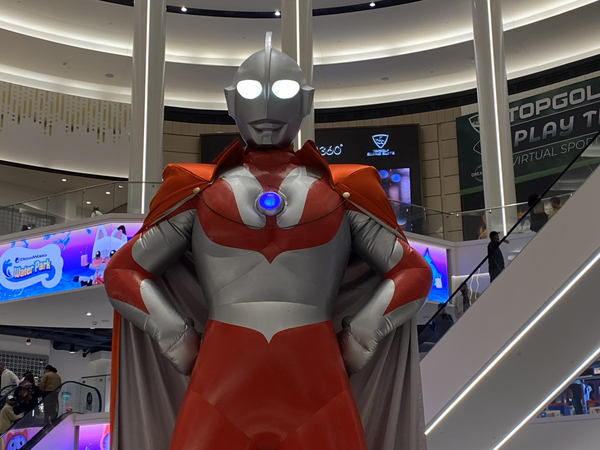Thank you, Akira Toriyama
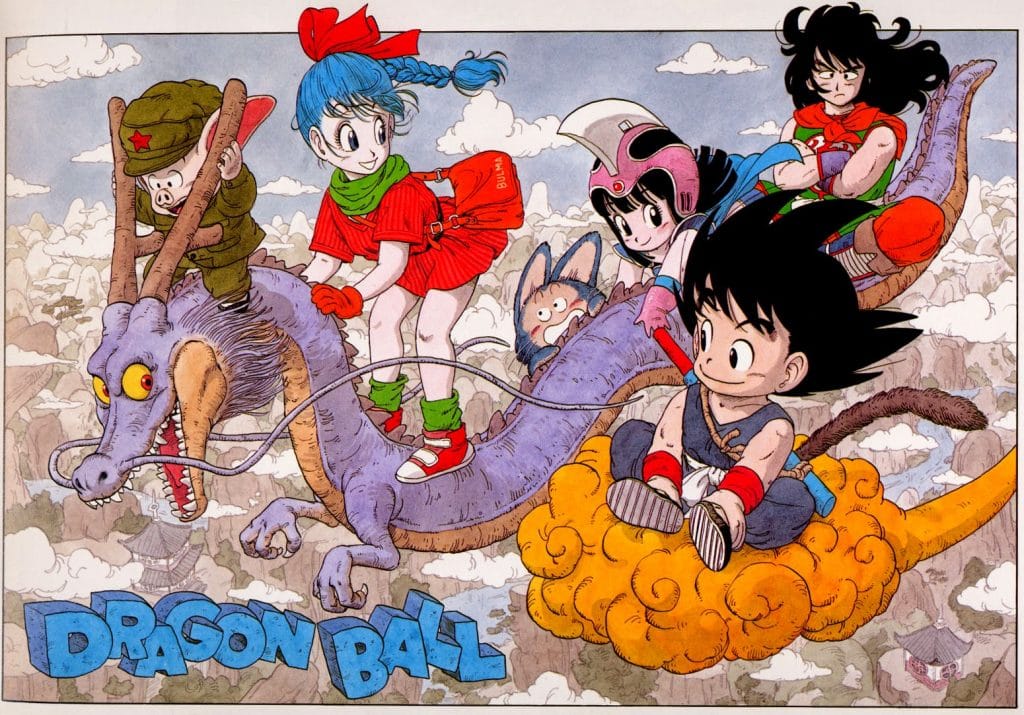
My first experience with the works of Akira Toriyama was from a pack of bootleg playing cards.
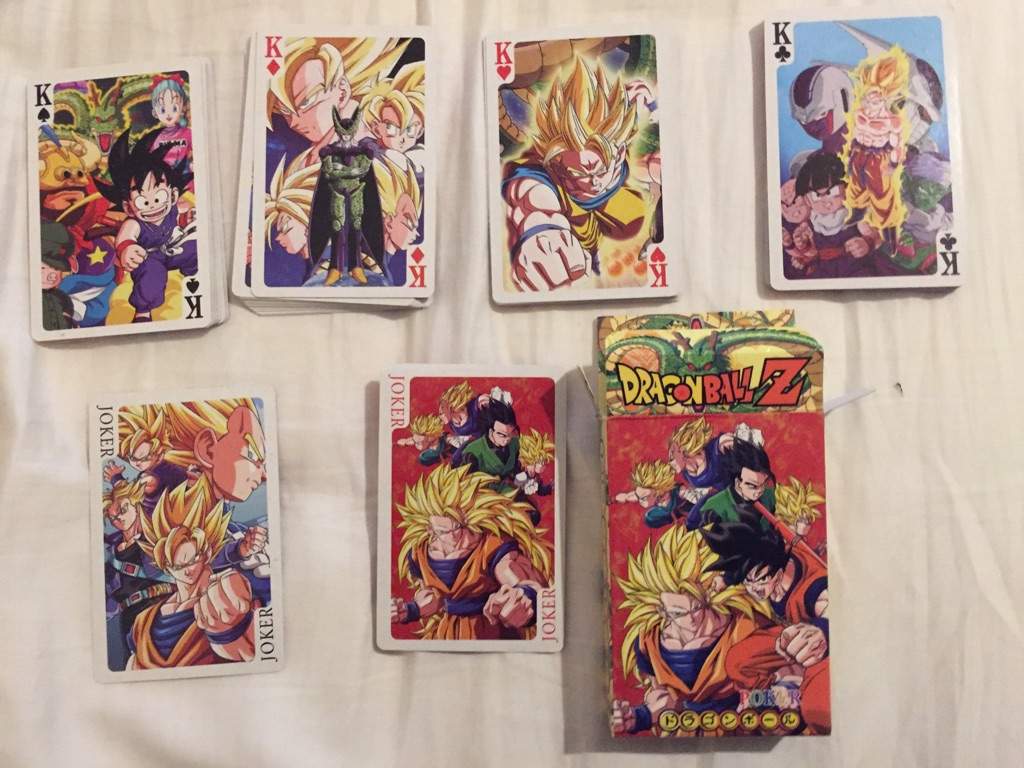
One day in the 90s on the drive home from school, a friend showed off these flashy, foil-covered, tacky playing cards with the most amazing art on them. Some kind of family of warriors with bright, spiked hair, sparkling and shooting beams out of their hands. Fighting battered and bloody, their clothes tearing to shreds, against the weirdest looking alien dudes, guys who look like they’re made out of car parts. All of it drawn like no comic book, video game, superhero or cartoon— not even Saturday Anime, which I watched in secret from my parents, or at Grandma’s place— I’d ever seen before.
But the coolest part was that my friend had stories about every single one of the playing cards. These guys had lifetimes’ worth of exploits in battle, endless foes defeated, and lives: generations of fighters, even.
By the time he got out of the car and walked home, we thought he was simply the greatest schoolyard bullshit storyteller who ever lived.
It was still a couple of years until I found out it was a real thing. My cousins had the posters on their walls. At family get-togethers they’d introduce me to Dragon Ball Z on bootleg VHS. Random movies and episodes; mind-blowing animated fights without context or continuity. Just raw cool stuff. They told me stories of this game, Final Bout, that they only at their one friend’s place; he got stuff from Japan. It was the best game ever, they told me.
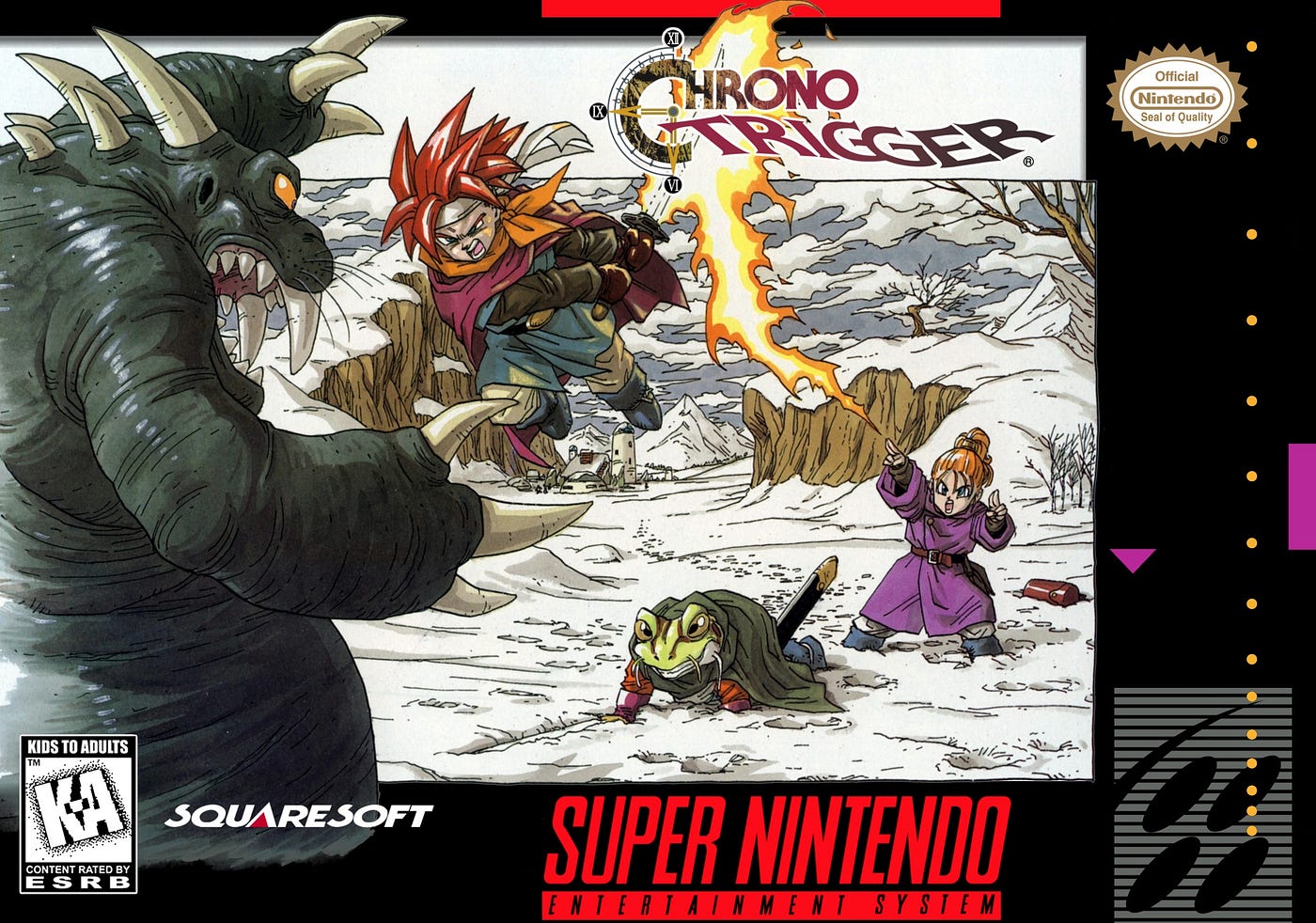
Speaking of, I learned the name Akira Toriyama in video game magazines, that he was the guy who drew these spiky warriors, and I probably bought Chrono Trigger because of it.
I was the kind of info-devouring 90s kid who read the TV Guide cover to cover— which was like Google for TV, but you had to look it up in a book, but also the search results were actually correct— and when it said something about a new show called Dragon Ball Z running at 6:30 AM one weekend morning, I started to make an appointment of it.
I was familiar with anime by this point; like I said, I would hide from my parents to watch Vampire Hunter D and Tank Police. So, like any young boy who’d watched the Puma sisters dance, I was excited about anime. And Dragon Ball Z paid off like no cartoon I’d ever watched. It was just… different.
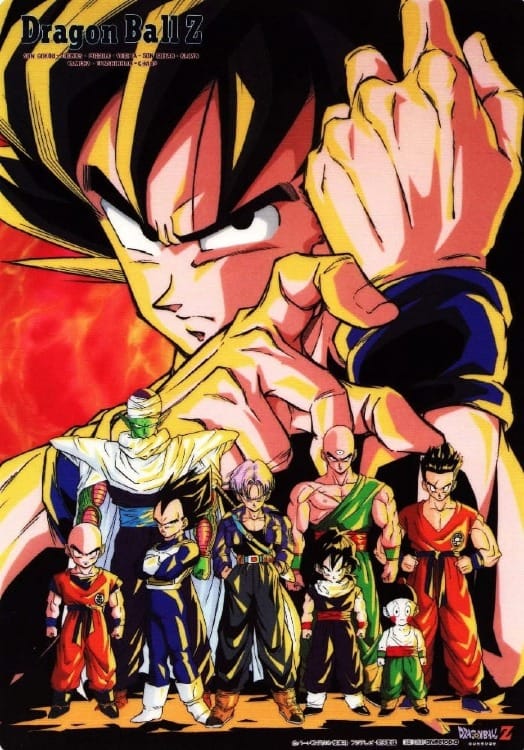
The fighting was of course like nothing I’d ever seen: fist-fights at light speed, guys flying and shooting beams and getting smashed through the sides of mountains. But no matter how crazy things got, Dragon Ball’s fantasy world always felt weirdly real. It had rules, it was tethered to something. The characters felt like people, with little flaws and foibles. And the action had consequences; people died— as much as someone can die in Dragon Ball— and even kids had to clench their fists and fight.
Like millions of other kids my age to come, I was absolutely fascinated. In junior high I would save up my lunch money for the whole week and walk up from school to Spanish Harlem, to that one shop that sold Goku figures for $13 and had an X-Men Vs. Street Fighter machine in the back. Waking up early in the morning to watch Dragon Ball Z was the beginning of Dave the anime enthusiast, the otaku. I have Akira Toriyama to thank for that, and for everything that came out of it.
I cooled off on Dragon Ball Z through my teens as I got interested in the wider world of anime and manga, and as the TV broadcast got caught up in endless repeats of the glacially paced Namek chapter on Cartoon Network. (Shout outs to the International Channel for running those later Namek episodes untranslated for us starving kids, and introducing me to Hironobu Kageyama.) Deep into my chuunibyou era, I was now saving up my allowance for VHS tapes of stuff like Macross Plus, Serial Experiments Lain, and Cowboy Bebop. I liked Dragon Ball, but was worried maybe it was kind of uncool next to the sophisticated grown-up anime that I liked even more.
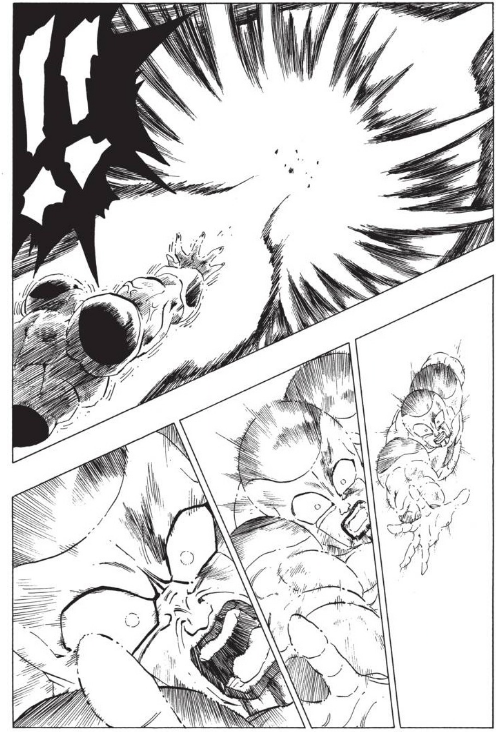
I became an adult when I realized that was stupid, and that it was okay to love Dragon Ball. Finding Toriyama’s original manga had a lot to do with that. That actually, everything I didn’t like about Dragon Ball was just a symptom of its TV serialization. That the comic was a full-on masterpiece of the form. And that Toriyama’s sensibility, for all the life-or-death struggle that Dragon Ball became, was really kind of goofy and comedic at heart. I bought a couple volumes of Dr. Slump, and damn it, I loved Toriyama again.
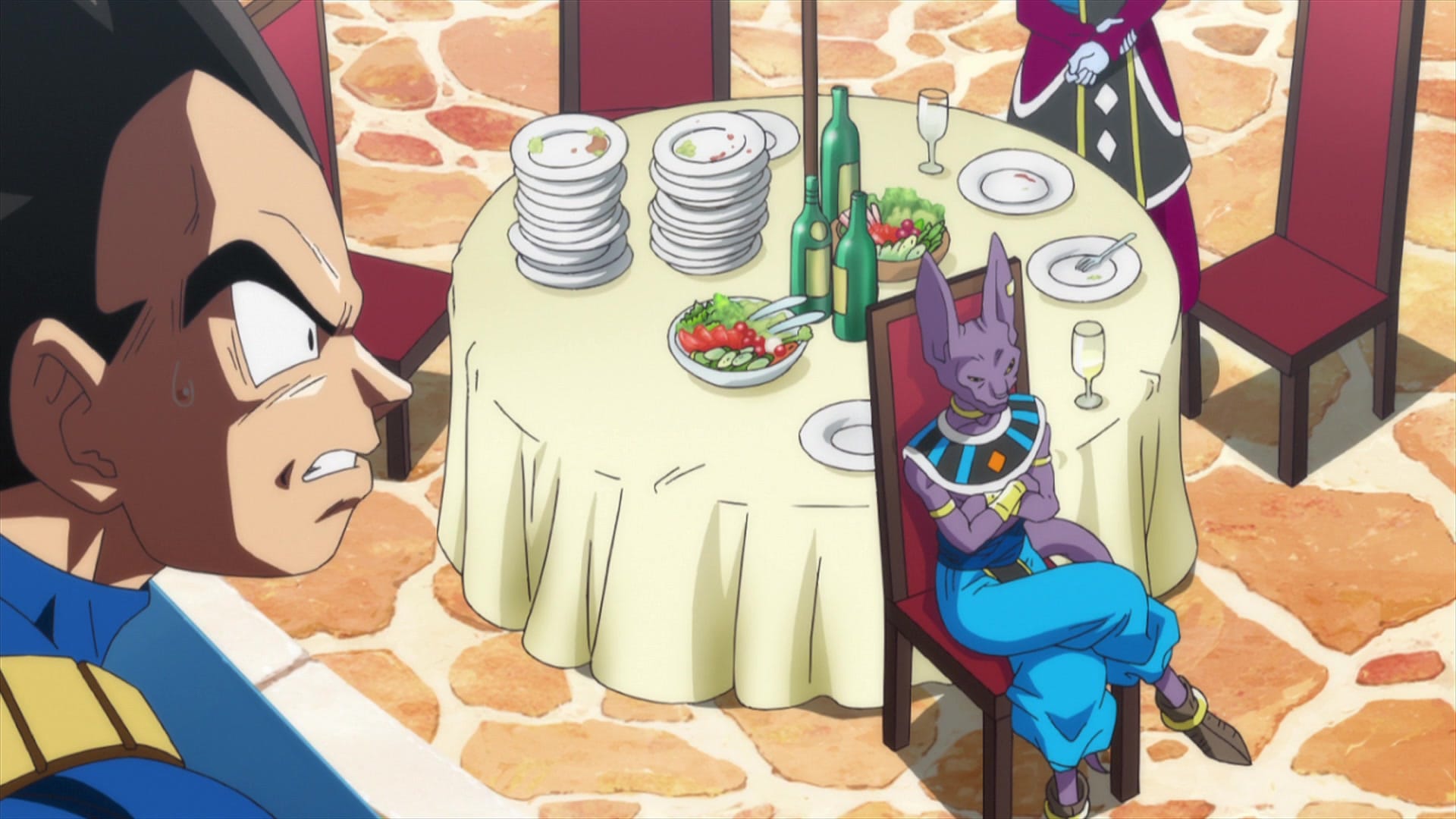
So I was thrilled when the Dragon Ball Super movies started to come out, because they were all I ever wanted from Dragon Ball: raw Toriyama tomfoolery, with a little super-powered universe-shaking battle on the side. I’m the specific guy who loves Battle of Gods, which, despite its title, is a movie which takes place almost entirely at a birthday party. But they’re all wonderful, because they all approach Dragon Ball in basically the same way.
With years away from his characters and with an audience of adults who grew up on them, obsessed about them, talked them all to the point of exhaustion, Toriyama presents an extended family of people who’ve just gotten used to all that crazy Dragon Ball shit that happens. And he lets us cheer them on and laugh together with them.
It is knowing, loving laughter that echoes in that theater, like that of old friends. Among the otaku pack who all came together, the dad who brought his kids because he wants them to feel the same way he did when he was young, the kids laughing at Vegeta’s stupid dance. The cheers when the fighting starts, the OHHHH when an elbow smashes into a face. The howling when Goku transforms, the screams of joy when Vegeta does the same.
I can think of no finer tribute to Akira Toriyama than the shouts, and laughs, and screams from the people I saw those movies with. I don’t think one man could ever feel or even comprehend the amount of affection that the world had for him, the love that burst from just that one theater.
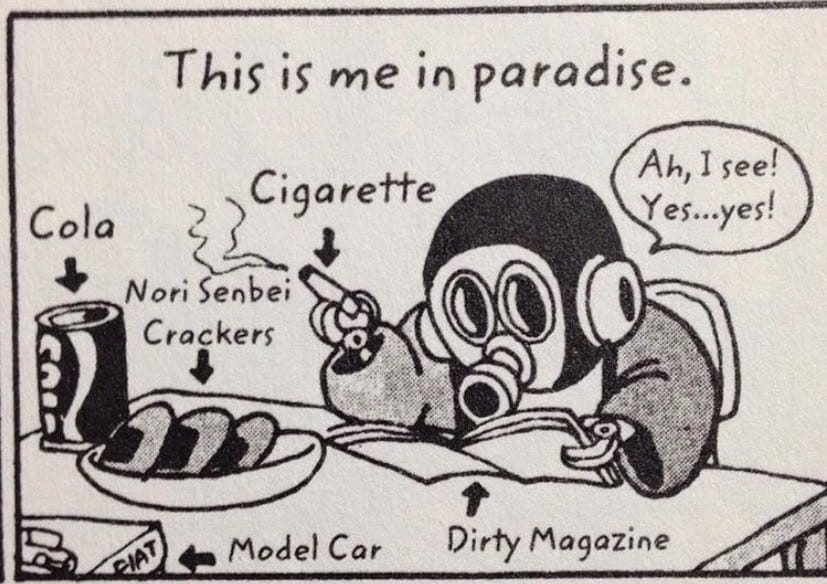
And I thought Toriyama would write up one of those movies every couple of years forever, I guess. I thought we’d always have him. 68? Whatever. Akira Toriyama doesn’t age; he’s too big for that. It’s unbelievable, now, that he’s gone. And that Dragon Ball was but a fraction of his work, and his influence.
There's that old interview with Toriyama and Eiichiro Oda, the author of One Piece, where the latter excitedly describes parts of the story in Dragon Ball that were formative for him as a child and which Toriyama has altogether forgotten he ever drew. The fact that Toriyama just banged out the Dragon Quest slime design as a correction. That he's also an incredible mechanical artist and designer, on top of it all.
The creativity and the influence and the sheer unfathomable power level of Akira Toriyama were the stuff of the greatest legends. We are that much poorer, and more, for having lost him.
Thank you, Mr. Toriyama. I'll never forget you and your wonderful worlds. In a thousand years, in fact, I think people will still remember you. Rest in peace.
